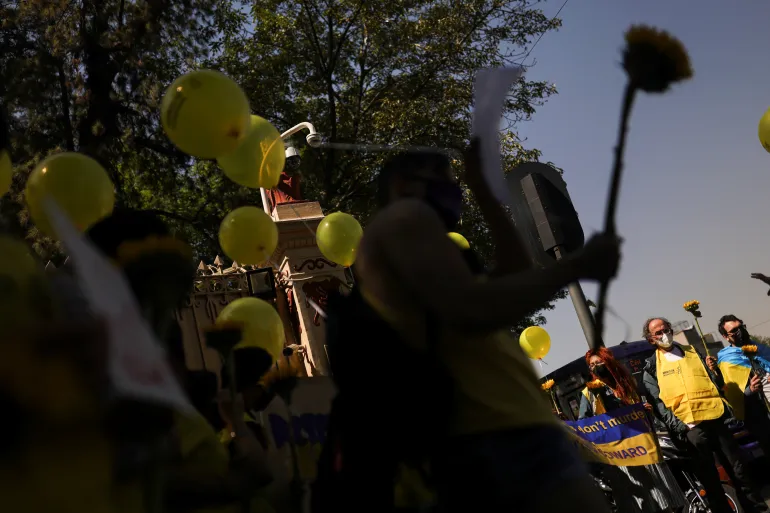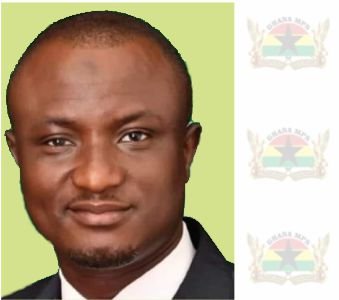Russian authorities have outlawed Amnesty International as an “undesirable organization,” a label that under a 2015 law makes involvement with such organizations a criminal offense.
The decision by the Russian Prosecutor General’s office, announced in an online statement, is the latest in the unrelenting crackdown on Kremlin critics, journalists and activists that intensified to unprecedented levels after Moscow invaded Ukraine in February 2022.
The Russian Prosecutor General’s Office said in the statement that Amnesty’s London office has acted as a “centre for the preparation of global Russophobic projects paid for by accomplices of the Kyiv regime.”
It claimed that since the start of the war in February 2022, Amnesty has been “doing everything possible to intensify the military confrontation in the region,” including by “insisting on the political and economic isolation of our country.”
The office also emphasised that members of the international rights group “support extremist organisations and finance the activities of foreign agents.”
The designation means the international human rights group must stop any work in Russia, and it subjects those who cooperate with it or support it to prosecution, including if anyone shares Amnesty International’s reports on social media.

Amnesty International was launched in 1961.
The group documents and reports human rights violations around the globe and campaigns for the release of those it deems unjustly imprisoned.
It has released reports on Russia’s war in Ukraine, accusing Moscow of crimes against humanity, and has spoken out against the Kremlin’s crackdown on dissent that has swept up thousands of people in recent years.
Amnesty International’s recent statements on Russia included decrying a prison sentence handed to prominent election monitoring activists Grigory Melkonyants as a “brazen and politically motivated clampdown on peaceful activism.”
It also spoke out against a series of arrests of publishing professionals in Russia last week over alleged “LGBTQ+ propaganda” in books.
Natalia Zviagina, Amnesty International’s Russia Director said, “This shameless heavy-handed use of state apparatus against literature is as absurd as it is terrifying.”
Russia’s list of “undesirable organizations” currently covers 223 entities, including prominent independent news outlets and rights groups.
Among those are prominent news organizations like Radio Free Europe/Radio Liberty or Russian independent outlet Meduza, think tanks like Chatham House, anti-corruption group Transparency International and Open Russia, an opposition group founded by Mikhail Khodorkovsky, an exiled tycoon who became an opposition figure.
After Open Russia was declared undesirable in 2021 and disbanded to protect its members, its leader, Andrei Pivovarov, was arrested and convicted on charges of carrying out activities of an undesirable organization.
He was sentenced to four years in prison and released in 2024 in the largest prisoner exchange with the West since Soviet times.
Amnesty International Calls Decision Part Of Russia’s Effort To Silence Dissent

Agnès Callamard, Amnesty International’s Secretary General, said that the decision taken by Moscow is part of its “broader effort to silence dissent and isolate civil society.”
“In a country where scores of activists and dissidents have been imprisoned, killed or exiled, where independent media has been smeared, blocked or forced to self-censor, and where civil society organizations have been outlawed or liquidated, you must be doing something right if the Kremlin bans you.”
Agnès Callamard
She said that the Russian authorities are “deeply mistaken” if they believe that by labelling Amnesty International “undesirable,” it will stop its work documenting and exposing human rights violations. “Quite the opposite,” she added.
She stressed that the organisation will redouble its efforts to expose Russia’s “egregious human rights violations both at home and abroad.”
Callamard said the London-based rights group would specifically keep documenting Russia’s “war crimes” in Ukraine and speak up for “prisoners of conscience” in Russia. “Put simply, no authoritarian assault will silence our fight for justice,” Callamard added.
READ ALSO: Investor Caution Deepens as Government Rejects GHS 2.59bn in Treasury Bids




















